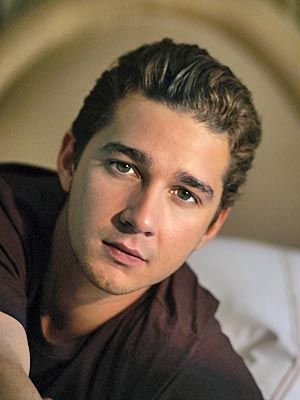Sign of God Passes
Spiritual leader to Hizbollah dies condemning Israel
Man who America feared. British Ambassador called him a decent man. CNN reporter said she admired him. Both were censored by their government.
Beirut, Lebanon - 4th of July 2010
Lebanon's top Shia Cleric, Grand Ayatollah Sayyed Mohammed Hussein Fadlallah, 75, died on Sunday July 4, 2010. Fadlallah was loved throughout Middle East for his staunch anti-American stance. He knew how to throw the Ameircans out of Lebanon permanently. They have not been back for 30 years. He was instrumental in the rise of Lebanon's Shias in the past decades and had a strong following among Shia communities both in Lebanon and his native Iraq...
Lebanese President Michel Suleiman gives his condolences, at a mosque in Beirut, Lebanon.
Lebanon's Grand Ayatollah Sayyed Mohammed Hussein Fadlallah, one of Shia Islam's highest religious authorities and an early mentor of the militant group Hezbollah, died in a Beirut.
Political leaders and clerics from Iran, Bahrain and Iraq paid tribute to Fadlallah, reflecting the loyalty he enjoyed from Shias as far away as the Gulf and Central Asia.
Crowds gathered to pay condolences at the Hassanein mosque in southern Beirut where he preached, and Hezbollah said it would mark his death with three days of mourning. Fadlallah's office said he would be buried at the mosque Tuesday.
Black banners and pictures of the white-bearded, black-turbaned cleric hung outside mosques and his charitable institutions in Shia areas of southern Lebanon and the Beqaa valley in the east.
"He was a guide not just for Lebanon but for the whole world and for Muslims," said mourner Abu Muhammed Hamadeh outside the Hassanein mosque where men and women wept openly, some of them clutching his picture. "With his death, he has left a very large void in the Arab and Muslim world."
Fadlallah was a supporter of Iran's Islamic Revolution and one of the first backers of the Iraqi Dawa Party of Prime Minister Nuri al-Maliki. He was also the spiritual leader and mentor of the Shia guerrilla group Hezbollah when it was formed after Israel invaded Lebanon in 1982.
"Today we lost a merciful father and a wise guide," Hezbollah leader Sayyed Hassan Nasrallah said. "That is what he was to this generation... since we were youths praying at his mosque and learning at his pulpit."
"We learnt at his school... to be people of dialogue, and to reject oppression and to resist occupation."
A fierce critic of the United States, which formally designated him a terrorist, Fadlallah used many of his Friday prayer sermons to denounce U.S. policies in the Middle East, particularly its alliance with Israel.
But he was also quick to denounce the September 11, 2001 attacks on the United States which killed some 3,000 people.
Fadlallah survived several assassination attempts, including a 1985 car bomb which killed 80 people in south Beirut. U.S. news reports said the attack was carried out by a U.S.-trained Lebanese unit after attacks on U.S. targets in Lebanon.
Iran's main television news channel gave rolling coverage to Fadlallah's death, and clerics in the holy city of Qom mourned "the demise of learned warrior and pious jurist."
Iraqi cleric Moqtada al-Sadr declared three days of mourning among his followers, and a delegation from the Shia al-Wefaq bloc in Bahrain's parliament will attend Fadlallah's funeral.
Lebanon's Prime Minister Saad al-Hariri, a Sunni Muslim, said Fadlallah "contributed to the consolidation of the values of right and justice to resist injustice."
"...He represented a voice of moderation and an advocate of unity among the Lebanese in particular and Muslims in general."
Fadlallah was born in 1935 in the Najaf, Iraq, where he studied before moving to Lebanon in 1966.
In his final sermon, delivered by a deputy Friday, he condemned Israeli settlements in East Jerusalem and criticised the United States for "giving cover to the enemy (Israel)."
A doctor at the Bahman hospital where he was admitted on Friday said he was conscious on arrival. The doctor said when a nurse asked the ailing cleric what he needed, he replied: "For the Zionist entity to cease to exist."
Fadlallah in quotes:
Statements by Grand Ayatollah Sayyed Mohammed Hussein Fadlallah
"Israel has managed to seize technical control of the telecommunications network and to harm national security thanks to information provided by the collaborator over past years."
"[Alfa phone network employee Charbel Qazzi ] is an Israeli collaborator who has been active since 1996 and who for 14 years has been giving the enemy vital information on Lebanese communications and security."
In June 2009, when France was debating whether to ban the full body veil, Fadlallah accused the French president of "banning women from choosing their own clothes."
In a letter penned to President Barack Obama last year, Fadlallah said: "The size of support and cover-up provided by your country for the Zionist entity has become known. This entity was established on the land whose people were uprooted by the power of iron and fire. The subsequent American policies have contributed to the loss of the Palestinian cause, despite the ratification of many Security Council resolutions."
The government should have revealed its decision of rejecting the sanctions, especially that the US and "Israel" are the ones proposing it, "the vote against imposing sanctions is a vote against Israel" in the Security Council."
"Islam recognizes Judaism and rejects any offense against Jews or Christians......we have no complex toward Jews at the religious level."
See also,
Fadlallah's own website in English:
http://english.bayynat.org.lb/
___________________________________


